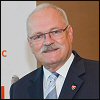Slovakia, the Chinese Gateway to Europe? | The Daily Slovakia
The Daily.SK
your independent English news for Slovakia
Posted by The Staff on 13 Jul 2011.
Read more: Slovakia, the Chinese Gateway to Europe? | The Daily Slovakia http://www.thedaily.sk/slovakia-the-chinese-gateway-to-europe/#ixzz2laMlRf8I
Slovakia, the Chinese Gateway to Europe?
Read more: Slovakia, the Chinese Gateway to Europe? | The Daily Slovakia http://www.thedaily.sk/slovakia-the-chinese-gateway-to-europe/#ixzz2laMaEAjc
hktdc.com - Gateway to Europe | HKTDC
15 Sept 2010
Gateway to Europe
 | |
In his first official visit to Hong Kong last week, the President headed a high-level delegation of some 40 major Slovak government and business leaders. At a business luncheon hosted by the Hong Kong Trade Development Council, Mr Gašparovič talked up the opportunities for investment in his country.
What is the purpose of your visit to Hong Kong?The purpose of my visit is very clear: to find business opportunities for Slovakia with other countries. Amid the global economic crisis, we have come to the region that is synonymous with economic success and dynamic development, even at a time when the global economy finds itself in an intricate situation. Hong Kong is constantly going through a transformation process, which has been pretty much typical of Central Europe, and Slovakia in particular, over the past two decades.
I have heard many interesting opinions here on how to address identical problems, including job creation, strengthening domestic demand, support for small and medium-sized businesses, and investment in advanced technology.
As an open economy and international financial centre, Hong Kong has, for many years, topped the Index of Economic Freedom and freedom from corruption. These achievements are extremely encouraging and inspiring for us.
Where are the areas for economic cooperation?Hong Kong is an important partner for the European Union and for Slovakia as well. Our Hong Kong meetings aim to present Slovakia as a European country with a stable and convenient environment for business and investment, hungry for cooperation in research and development, advanced technology and the tourism industry.
We met with officials to discuss opportunities for doing business with Hong Kong. We spoke about Slovakia being the possible logistics centre or gateway to Europe because of our strategic position there.
We’re also interested in attracting Hong Kong investment in our spa tourism. Slovakia has many hot springs, some of which are still waiting to be discovered. So we’re talking about the possibility of developing the spa industry, with cooperation from Hong Kong investment.
We have also spoken about the possibility of cooperation in science and research and about opportunities for investment in our infrastructure projects.
Why is Slovakia an ideal place to invest? We are situated in the heart of Europe, connecting the West with the East. We have a simple tax system, and are the fastest-growing economy in the European Union. We are also part of the single European currency.
Hong Kong businessmen would find a very friendly economic environment in Slovakia, with a very good tax system for business and a low-cost, qualified labour force.
Slovakia is about to become the leading producer of flat-screen televisions in Europe, and is now the biggest producer and exporter of cars in Europe per capita, with companies like Volkswagen, Hyundai and Peugeot setting up factories there.
Why are you interested in partnering with Hong Kong?You are part of China, so we would like to invest together in China, but you can also invest in Slovakia. Being one of the world’s major financial centres, Hong Kong has a great investment potential and is home to a number of successful firms that may establish themselves in Slovakia in sectors generating a higher added value. In light of the experience of several major companies from the Southeast Asia region, I am convinced that such investments would be mutually very rewarding.
As a member of the European Union, what’s Slovakia’s position on the bailout of EU members such as Greece?For Slovakia it was very positive to enter the EU. The fact is that the European common currency makes it easier to do business in Slovakia. I believe the euro will stabilise and will remain the common currency. Authorities are doing their utmost to stabilise the euro, but the euro needs discipline from all members of the Eurozone, to accept the Maastricht Treaty, by following the same conditions and responsibilities for all EU countries.
Greece has not been very responsible with its economy. They have made some irresponsible decision and there was also a lack of control on the part of the EU, which led to this situation.
Slovakia didn’t really deny help, but we don’t agree with everything. Slovakia is also a very fast-developing country. But we were finding ways to balance the economy in order not to overheat or slow down the economy. For example, Slovak pensioners are receiving four times less in terms of benefits than Greek pensioners. Greece’s civil servants are paid 10 times more than their Slovak counterparts. We’ve balanced the budget to comply with the Maastricht Treaty. Greece didn’t pay attention to these things and overstepped all these criteria. We have less money than Greece, but we are doing it economically and we’re able to help those with more money, so that’s why we say it’s not a good idea.
We told the EU to impose some conditions on Greece. We’re willing to help them, but we should be assured that they won’t waste money again.
How do you think countries should respond to continuing uncertainty about the global economy?The economic crisis is a global problem and I don’t believe that any country could resolve this problem without cooperating with other countries. Every country should cooperate according to the ability of its economy. I can compare it to my trip to Hong Kong. We would recover more quickly if we have more cooperation with a developed economy like Hong Kong.
Slovakia: Potential Gateway for Reverse Gas Flows from Europe to Ukraine | Eastbook - blog on EU Eastern Partnership







No comments:
Post a Comment